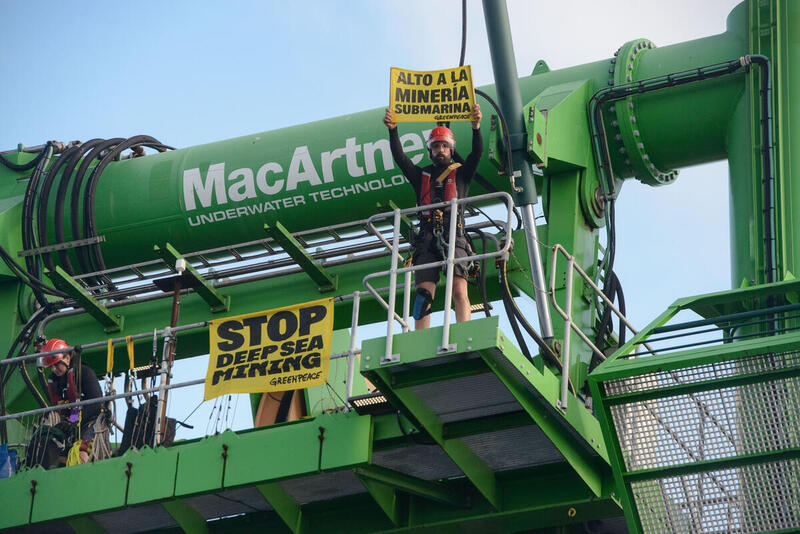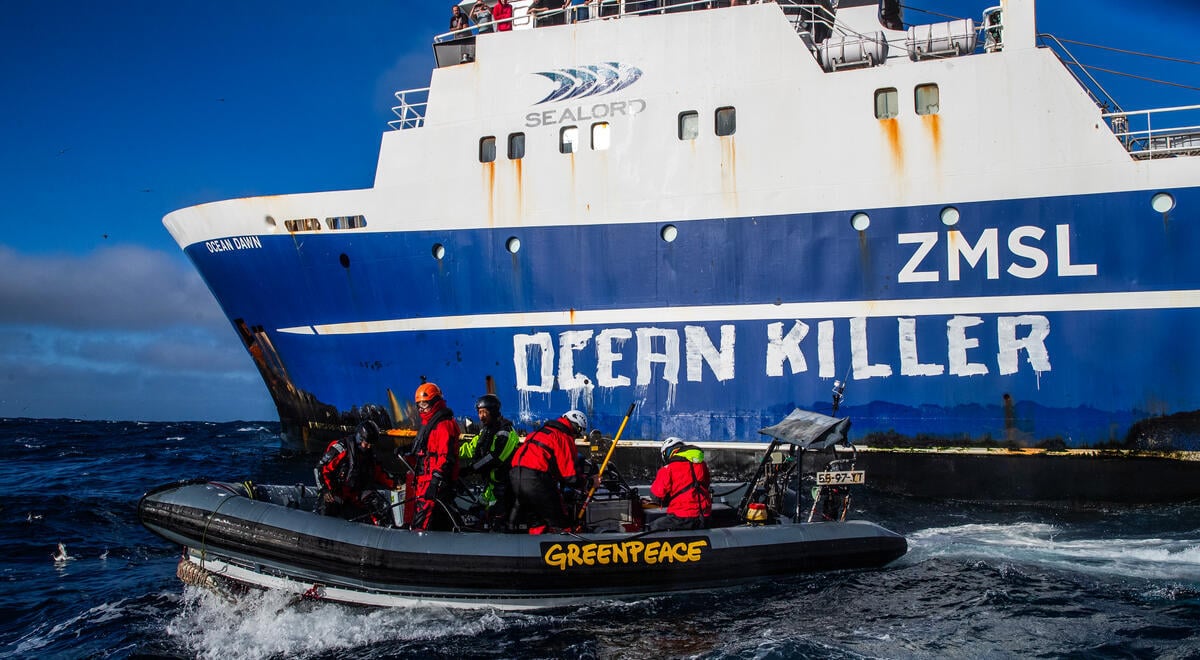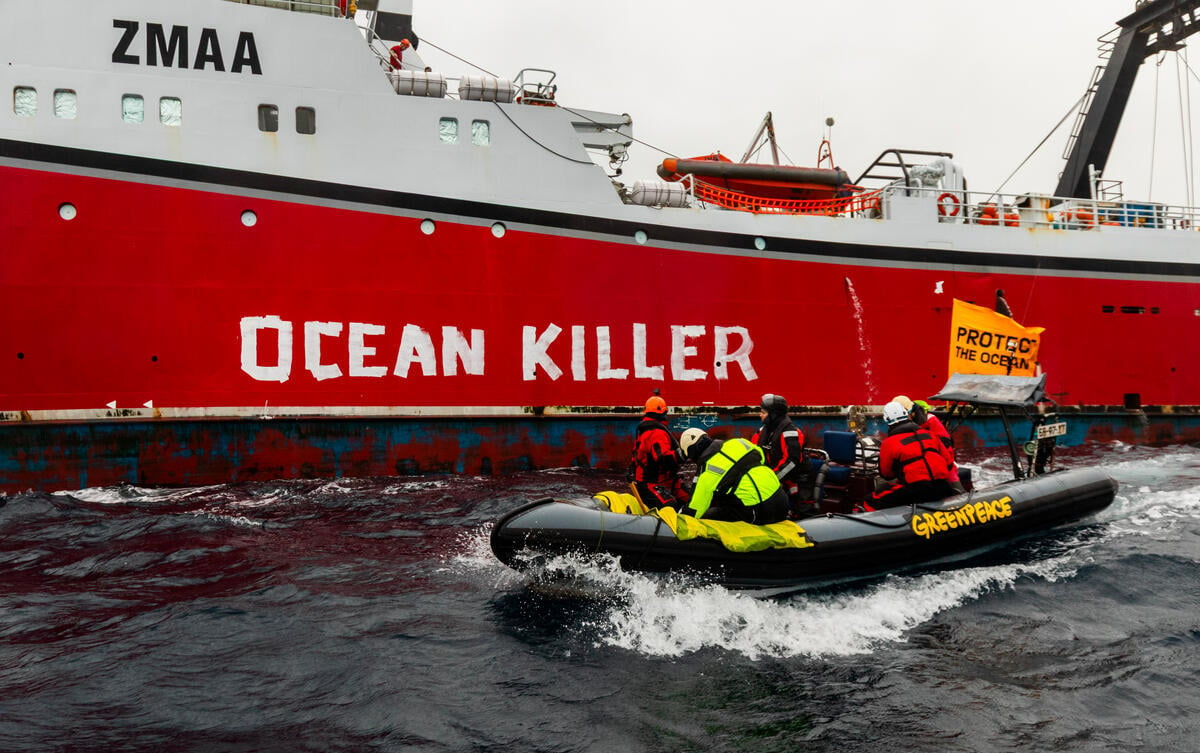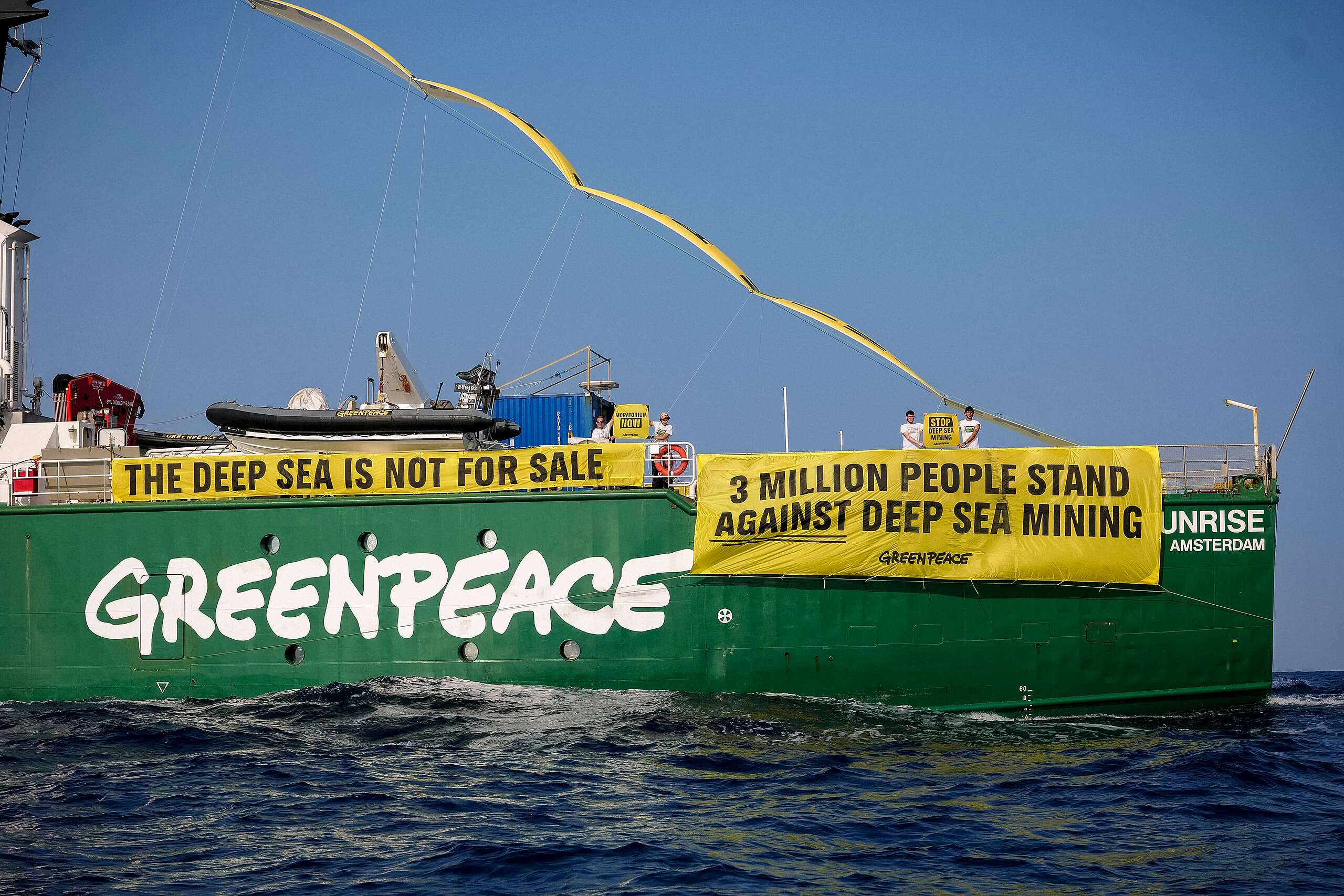Wannabe deep sea miner, The Metals Company (TMC) has attempted to silence Greenpeace International’s ongoing protest in the Clarion Clipperton Zone by threatening the organisation with an injunction on Saturday, November 25. Undeterred by the threats however, activists climbed the ship working for the deep sea miners in the Pacific Ocean.

Two activists remain on the vessel’s stern to peacefully demand that TMC stops its deep sea mining exploration activities and drops destructive plans in one of the world’s last untouched ecosystems.
Greenpeace International Stop Deep Sea Mining campaigner Louisa Casson, aboard the Arctic Sunrise, said: “This industry that claims to be green is now threatening to take environmental activists to court. Deep sea miners have no credibility and are showing their true colours, using the exact same tricks as the oil industry to wreak damage on our planet when it has already had far too much. Science is saying no to deep sea mining, and countries are lining up to call for a stop to this risky industry that’s only out for its own profit, at huge cost to us all.”
At around 3.30 pm (GMT-7) in the eastern Pacific Ocean, a boat launched from Greenpeace’s Arctic Sunrise vessel approached MV COCO, a vessel used for offshore drilling. In the past 5 days, TMC has tried to swiftly collect data as part of its plan to file the world’s first commercial mining permit. A non-stop Greenpeace International protest involving kayaks and small boats has disrupted their plans from dawn to sunset.
After describing this lawful protest as “kayaking and taking selfies”, TMC’s CEO Gerard Barron, moved on to threaten activists with an injunction. Greenpeace International successfully went ahead with plans to escalate its protest against deep sea mining by getting four climbers to occupy the stern crane that the ship was using to collect data.
Two Greenpeace International climbers used ropes to scale TMC’s ship from one of the small boats and have been occupying the crane since Saturday. They were joined by three other activists. Other Greenpeace International activists joined the protest from the Arctic Sunrise, bearing witness and brandishing banners with the message: Stop Deep Sea Mining in multiple languages. Two climbers are still attached to the MV COCO.
Sofia Castellanos, a Greenpeace International activist who scaled TMC’s ship, said: “I am taking action against a ship that works for the oil industry and is now working to get a green light for the next destructive industry to start. In Mexico, we’ve spent years cleaning up countless oil spills from our coasts. I can’t go back and block the oil industry from starting, but I am here because we can stop deep sea mining before it destroys our oceans.”
In June 2021, TMC made use of a legal loophole in international law to try and force governments’ hands to allow deep sea mining to begin, despite unresolved negotiations at the International Seabed Authority (ISA). After governments did not give deep sea mining the green light in July 2023, TMC announced that they will submit a deep sea mining commercial application next year, even in the absence of any regulations and despite there being 24 countries calling for a moratorium, with Mexico joining the list last Tuesday.[3][4][5]
Alex Rogers, professor of biology at Oxford University and Science Director at Ocean Census, said: “The Metals Company has tried to subvert a democratic process and push countries into accepting commercial-scale mining before sufficient science is available to make an informed decision. The international seabed and the high seas are the common heritage of humankind, and it should not be in the purview of companies aimed at enriching a few to destroy marine ecosystems.”
Over 39,000 people have signed a petition calling on the New Zealand Government to support a global ban on deep sea mining. The Labour-led government backed a “conditional moratorium” on seabed mining in international waters, a move which Greenpeace Aotearoa applauded but urged for an even stronger position.
ENDS
Photos and Videos can be accessed from the Greenpeace Media Library.
Notes
MV COCO, equipped with two Remotely Operated Vehicles (ROVs), arrived in the NORI-D licence area on the 16th of November, where TMC has carried out several expeditions since the ISA granted NORI, a wholly-owned subsidiary of TMC sponsored by the small Pacific Island of Nauru, an exploration contract in 2011. It is one of the three sites in the Pacific Ocean controlled by Canadian-registered The Metals Company. TMC carried out the first deep sea mining test done since the 1970s in this area and returned to port a year ago after extracting 4,500 tonnes of polymetallic nodules.
The Chairman and CEO for The Metals Company’s post describing this protest as “kayaking and taking selfies”
TMC’s announcement that they will submit a deep sea mining commercial application next year
24 countries calling for a moratorium against deep-sea mining
Mexico supports moratorium on deep sea mining in areas beyond national jurisdiction



